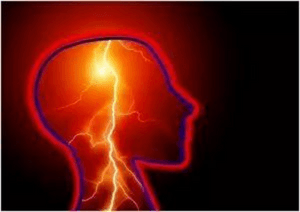Yes. Trauma can definitely cause epilepsy.
When most people think of epilepsy, they think of a genetic condition. Genetics do impact the likelihood that a person will suffer from epilepsy. Many people are born with the condition, due either to genetics or pre-natal injury such as oxygen deprivation in the womb or during the birth process. However, there are a number of other ways children and adults develop epilepsy, including disease and head trauma.
What is Epilepsy?
The term “epilepsy” is broadly applied to disorders characterized by recurring seizures. About 3.4 million Americans suffer from epilepsy, though the severity of the condition, the frequency of seizures, and the cause of the disorder vary widely. In technical terms, anyone who suffers two or more seizures not triggered by a trauma, fever, or other identifiable event is considered to be epileptic.
For a free legal consultation, call (212) 732-2929
Seizures after Serious Head Injuries
It’s not unusual for a serious head injury to cause seizures in the immediate aftermath of the injury. When that occurs, it’s important to seek medical attention right away. Seizures can do additional harm to the brain. Timely treatment can avoid or mitigate this damage, while those who ignore seizures may face lasting deficits.
Not every patient who suffers seizures shortly after a head injury will develop epilepsy or otherwise experience long-term problems. Often, the seizures experienced shortly after the injury resolve. On the other hand, seizures associated with the development of epilepsy may not begin for months, or even years.
Can Epilepsy be Caused by Head Trauma?
According to the Epilepsy Foundation, traumatic brain injury (TBI) is the most common cause of symptomatic epilepsy among those aged 15-24. More serious head injuries, such as penetration injuries and depressed skull fractures, are more likely to cause seizure disorder. This type of epilepsy is known as post-traumatic epilepsy (PTE).
Head injuries causing epilepsy can occur in a variety of circumstances, including:
- Construction accidents
- Sports injuries
- Intentional battery
- Car accidents
- Falls
- Motorcycle accidents
- Bicycle accidents
The onset of epilepsy after a TBI varies, so it may not be identified when the injured person originally undergoes medical assessment and treatment. In some cases, traumatic epilepsy can occur immediately or shortly after the trauma. Most cases—about 80%–will emerge within the first two years following the injury. However, it is not unusual for symptoms to emerge at any time within the five years following the head injury, and occasionally even later.
Seeking Medical Care after a Head Injury
Anyone suffering a serious head injury should consult with a physician as soon as possible after the accident. Epilepsy is just one risk of head injuries, and the gravity of the damage may not be evident to those without medical training. CT scans, MRIs, or other diagnostic testing are often required to identify the nature and extent of the injury.
Covering the costs of medical care from a head injury is difficult. But if another party caused your trauma, you may be able to seek financial recovery. A brain injury lawyer in New York can review your case, determine fault, and help you recover damages for your head injury losses.
Click to contact our personal injury lawyers today
Liability for Post-Traumatic Epilepsy
If traumatic epilepsy or other serious medical problems develop due to a traumatic brain injury caused by the negligence of another party, that party liable for damages. Damages will vary from case to case, but may include medical expenses, decreased earning capacity, and compensation for pain and suffering.
If you’ve suffered a serious head injury or a loved one is suffering from TBI, an experienced brain injury attorney can be your best resource. Don’t take chances with your future. If you’ve been injured, schedule a free consultation with a New York personal injury lawyer right now—just use the form in the upper right corner of this page, or call (212) 732-2929.
Call or text (212) 732-2929 or complete a Free Case Evaluation form






